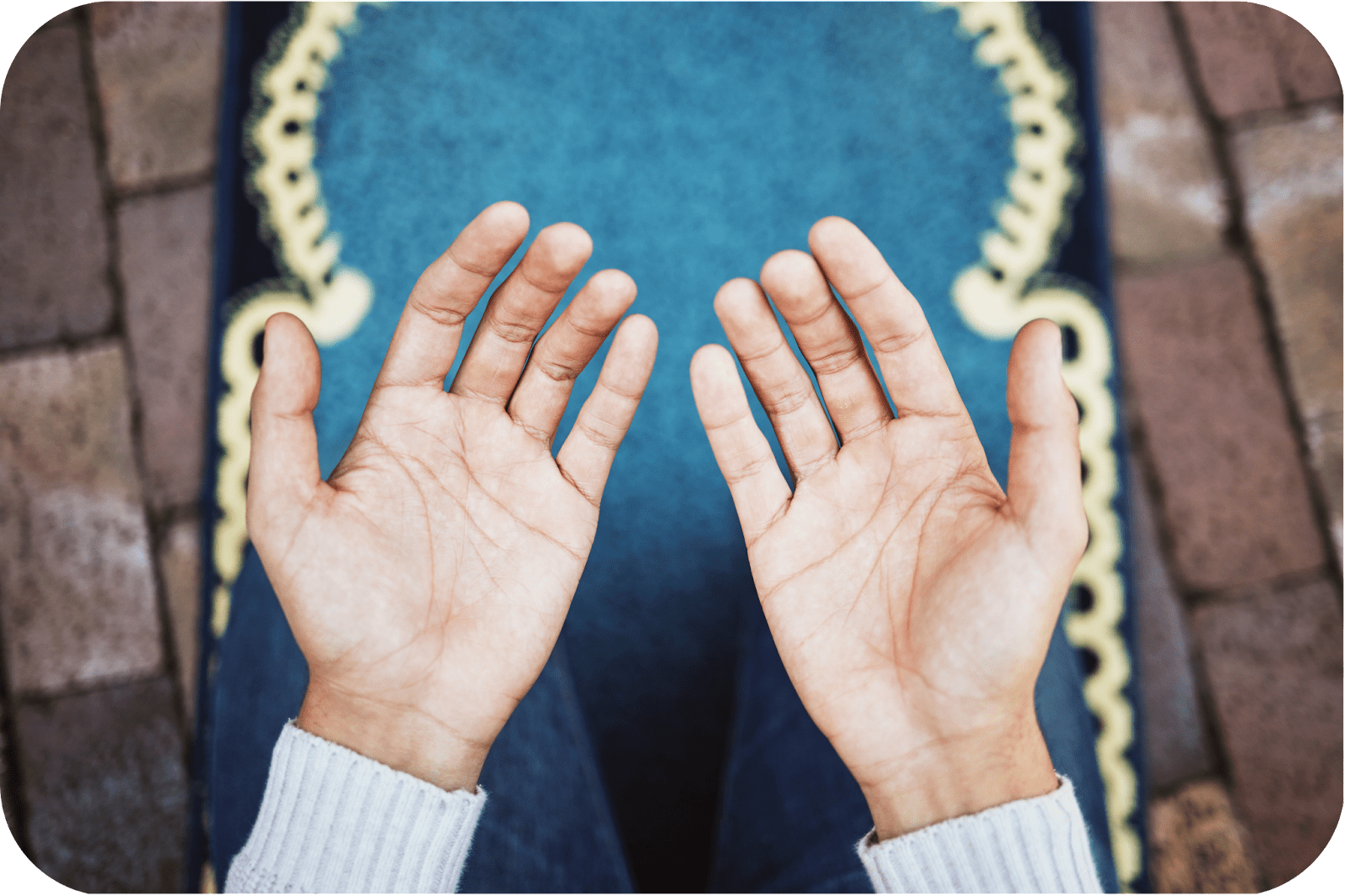10 Best Ramadan Duas You Need To Know
10 Best Ramadan Duas You Need To Know

Ramadan is the most sacred month in the Islamic calendar and is a special time for Muslims worldwide. It's a time when we fast from dawn till sunset, but it's also much more. Ramadan is about connecting deeply with our faith, reflecting on our lives, and seeking closeness to Allah. One powerful way we do this is through dua (supplication).
In this blog post, we'll talk about why dua is so important during Ramadan and share a list of 10 powerful duas you can use in your prayers. These dua can help you ask for forgiveness, guidance, and blessings, making your Ramadan experience even more meaningful and fulfilling.
Why You Should Make Dua in Ramadan?
Ramadan isn't just about fasting from dawn till dusk; it's a time for deep spiritual connection and growth. Making it an opportune time to engage in dua.
Ramadan is the perfect time for seeking forgiveness and cleansing the heart. The Prophet Muhammad (peace be upon him) said:
“Verily, Jibril (AS) came to me, and he said: ‘Whoever reaches the month of Ramadan and he is not forgiven, then he will enter Hellfire, and Allah will cast him far away. So, say “Amin”.’ I said, ‘Amin’.”
(Sahih Ibn Hibban, 907)
Expressing gratitude is another essential aspect of dua in Ramadan. Muslims reflect on their blessings and express thanks to Allah for His countless favors. Dua provides a platform to acknowledge and appreciate these blessings.
Furthermore, Ramadan is a time for seeking guidance and clarity. As individuals strive to improve themselves spiritually, they often turn to Allah for guidance and wisdom through dua.
1. Dua after Seeing the Crescent Moon
“O Allah, let the crescent loom above us in peace and faith, safety and Islam, and in agreement with all that You love and pleases You. Our Lord and your Lord is Allah.
Transliteration:“Allahumma ahlalhu 'alayna bil-amni wal-eeman, was-salamati wal-Islam, watawfiq lima tuhibbu wa tarda, Rabbuna wa Rabbuk Allah."
This prayer is said when the crescent moon is sighted, marking the beginning of Ramadan. It's a heartfelt request for peace, faith, and guidance during this holy month. By uttering these words, believers seek blessings and divine protection for themselves and their community as they embark on their spiritual journey.
2. Dua for intentions before fasting
“With the intention to fast tomorrow, from the month of Ramadan."
Transliteration:“Wa bisawmi ghadin nawaitu min shahri Ramadan."
This Dua is recited to express one's intention to fast the following day during the month of Ramadan. It's a spiritual commitment, aligning oneself with the act of fasting, which not only involves abstaining from food and drink but also encompasses a deeper intention of spiritual growth and connection with Allah.
3. Dua to Start Fasting and for Suhoor
“Praise is to Allah Who has given me this food and sustained me with it though I was unable to do it and powerless."
Transliteration:“Alhamdu lillahi alladhi at'amani hadha, wa razaqanihi, min ghayri hawlin minni wa la quwwatin."
As dawn approaches, believers wake up for Suhoor, a pre-fast meal. This simple yet profound supplication acknowledges the divine provision of food and strength, recognizing human frailty and dependence on Allah's mercy. It serves as a reminder of gratitude and humility, fostering a sense of spiritual connection and reliance on Allah's blessings throughout the day of fasting.
4. Dua for Closing Fasting (Iftar)
“The thirst is gone, the veins are moistened, and the reward is confirmed if Allah wills."
Transliteration:“Dhahaba ath-thama'u wabtallatil 'urooqu, wathabatal-ajru in shaa'Allah."
This prayer is recited when breaking the fast at sunset (Iftar). It's a moment of gratitude, acknowledging the relief from thirst and anticipating Allah's rewards for the fasting day. By uttering these words, believers express their appreciation for sustenance and divine blessings received during Ramadan.
5. Dua when Insulted While Fasting
“I am fasting. I am fasting."
Transliteration:“Inni sa'im, inni sa'im."
This simple affirmation is recited when encountering insults or provocations while fasting. It serves as a reminder to remain composed and steadfast in observing the fast, regardless of any adverse situations. By calmly asserting their fasting state, believers uphold the dignity and sanctity of Ramadan amidst challenging circumstances.
6. Dua for seeking help and guidance in fasting
“O Allah, assist me in fasting and standing for prayer, and keep me away from mistakes and sins, and bless me with the remembrance of You throughout it. By Your guidance, O Guide of those who are astray."
Transliteration:“Allahumma a'innee feehi 'alaa siyaamihi wa qiyaamihi, wajannibnee feehi min hawfaatihi wa athaamihi, wa rzuqnee feehi dhikrak bidawamihi, bi-tawfeeqika ya haadi al-mudhilleen."
This Dua seeks Allah's help and guidance to observe fasting and night prayers, while also asking for protection from errors and sins. It's a supplication for spiritual strength and steadfastness throughout the fasting period, acknowledging one's reliance on Allah for success in observing the fast and avoiding wrongdoing.
7. Dua for staying focused while fasting
“O Allah, grant me alertness and vigilance during it, and keep me away from foolishness and deception, and grant me a share of every good through Your generosity."
Transliteration:“Allahumma arzuqnee feehi ath-thiin waltanbiyah, waba'dnee feehi min as-sifahati waltamwihi, waj'al lee naseeban min kulli khayrin bijoodika."
This Dua asks for mental clarity and protection from distractions and deceit during fasting, seeking Allah's generosity in all goodness. It's a supplication for guidance and wisdom to discern between right and wrong, and to be mindful of one's actions and intentions while observing the fast.
8. Dua after Taraweeh Prayers in Ramadan
“In the name of Allah, The Most Compassionate, The Most Merciful. Praise be to Allah, Lord of all the Worlds. Prayers and salutations be upon the noblest of all the prophets, our leader, Muhammad, and upon his entire family and companions."
Transliteration:“Bismillahi r-rahmani r-rahim. Alhamdu lillahi rabbil-'alameen, was-salatu was-salamu 'ala ashraf al-anbiya'i wal-mursaleen sayyidina wa mawlana Muhammadin wa 'ala aalihi wa sahbihi ajma'een."
This supplication expresses gratitude and reverence for the opportunity to engage in Tarawih prayers, seeking Allah's mercy and blessings for Prophet Muhammad (peace be upon him) and his companions. It serves as a moment of reflection and spiritual connection, reinforcing the importance of Prophet Muhammad's teachings during the blessed month of Ramadan.
9. Dua for Laylatul Qadr
“O Allah, You are indeed Forgiving and love to forgive, so forgive me."
Transliteration:“Allahumma innaka 'afuwwun tuhibbul 'afwa fa'fu 'anni."
Laylatul Qadr, known as the holds immense significance in Islam, believed to be better than a thousand months. Muslims seek forgiveness and mercy during this blessed night, recognizing it as a time when prayers are more likely to be accepted. This heartfelt dua is made during the last ten nights of Ramadan and reflects the believer's profound desire for divine mercy and forgiveness, acknowledging Allah's boundless compassion.
10. Dua for When Invited for Iftar
“May those who have fasted break their fast with you, may the pious eat your food, and may the angels pray for you."
Transliteration:“Aftara 'indakumu as-sa'imoon wa akala ta'amakumu al-abrar wa sallat 'alaikumu al-mala'ikatu."
This heartfelt dua is recited upon breaking the fast at someone's invitation, and reflects the appreciation for the host's generosity and invokes blessings for their household. Additionally, it acknowledges the significance of sharing meals and prayers during this sacred month, reinforcing the bonds of friendship and goodwill among believers.
Conclusion
Duas play a vital role in enriching your Ramadan experience, these prayers serve as a means of seeking guidance, forgiveness, and blessings from Allah, strengthening the connection between the believer and the Creator during the holy month.
Through the recitation of these powerful Duas, fasting becomes not only a physical act of abstaining but also a deeply spiritual practice that nurtures the soul.
At Riwaya we understand the importance of enhancing your worship experience during Ramadan. Explore our collection of decorations, gifts, and other Islamic products to enrich your fasting journey and deepen your connection with Allah.
Selling on Riwaya
Ramadan is the perfect time to share your unique Islamic products with a global audience. Join Riwaya as a seller and be part of a platform that celebrates the spirit and traditions of Ramadan.
At Riwaya, we provide a space where your products can resonate with individuals seeking meaningful and authentic experiences during Ramadan. Your contributions have the power to connect communities, fostering a sense of shared heritage and values.
Become a seller with Riwaya today and let your products find their perfect audience effortlessly and contribute to joyous and meaningful Ramadan celebrations.
FAQs
Q1: What is the significance of reciting Duas during fasting?
Duas during fasting offer a unique opportunity for Muslims to connect with Allah on a deeper level, seeking blessings, guidance, and protection during this sacred period. Through Duas, believers express their gratitude, seek forgiveness for past transgressions, and ask for strength to endure the physical and spiritual challenges of fasting.
Q2: How frequently should one make dua?
There is no fixed frequency for making dua; it's a personal and continuous connection with Allah. Muslims are encouraged to make dua regularly, especially during moments of need, seeking Allah's guidance and blessings for during fasting.
Q3: Can I make dua on behalf of others?
Yes, it is permissible and noble to make dua for the well-being, prosperity, and blessings of others, including family, friends, or the community. Offering prayers on behalf of others is considered a selfless act and is encouraged in Islam.
Q4: Are there specific etiquettes or manners to follow while making dua?
Yes, some recommended etiquettes include facing the Qibla (direction of Kaaba), beginning and ending with praising and sending blessings upon the Prophet Muhammad (peace be upon him), raising hands while supplicating, and expressing humility and sincerity.
Q5: What is Niyyah and why is it important?
Niyyah, or intention, refers to the sincere intention one makes in their heart before performing an act of worship, such as fasting in Ramadan. It serves as the spiritual foundation for any act of devotion, including fasting, and is essential for the acceptance of one's deeds by Allah.
Q6: Does Niyyah Need to Be Said Out Loud?
In Islam, verbalising the Niyyah for fasting is not obligatory. It suffices to have the intention in your heart to fast for the sake of Allah before the break of dawn (Fajr). While some scholars recommend verbalising the Niyyah for clarity and reinforcement of intention, it is ultimately the sincerity of one's intention that matters most in worship.



